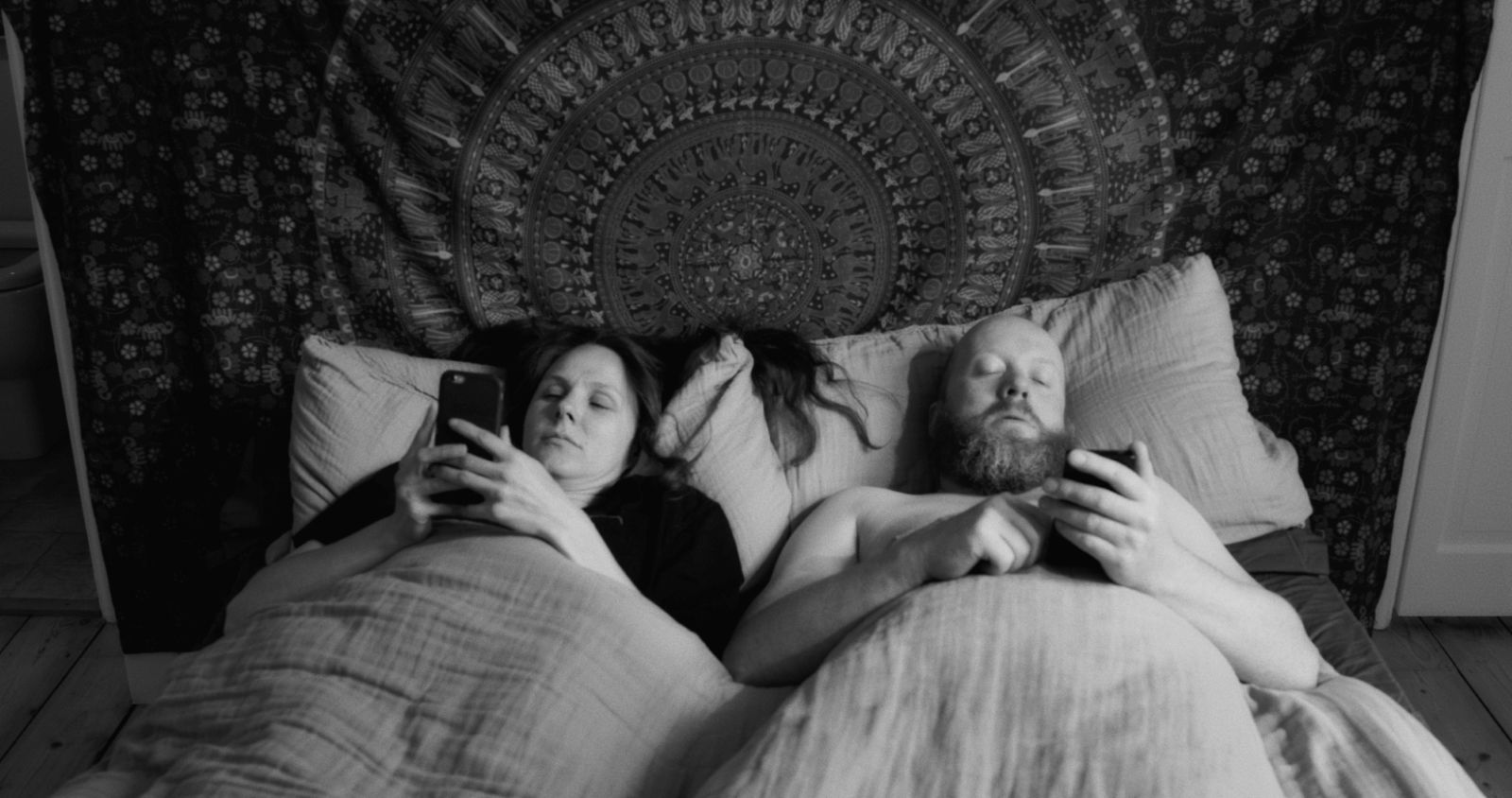This crowdfunded, microbudget sort-of-romantic sort-of-comedy from filmmaker Mikey Murray is an unexpected gem for the vast majority of its duration. A portrait of a stagnant relationship in moody, grainy black and white, this pleasantly bleak character piece is a really immersive experience thanks to some unobtrusively innovative filmmaking choices and two excellent, authentic lead performances. All of which makes some baffling final-act decisions all the more galling when it impresses in so many ways.
Lucy and Paul (Eilis Cahill and Steve Oram), a longstanding couple mired in static dysfunction thanks to their own distinct issues. Paul’s crippling agoraphobia means he rarely even gets dressed, spending his time between the kitchen and his laptop as he works on a screenplay. Lucy has a generic office job she despises and struggles with depression, exacerbated by her flushing her daily medication, preferring unpredictable reality to a bland stability. A new work colleague sparks interest in Lucy and she’s awakened to the idea of a new, possible romantic connection.
Murray wastes no time in engaging us intimately with Lucy and Paul in a grimly hilarious sexual act of almost spectacular mundanity. It’s very ordinariness establishes them as people before we learns anything about their issues with mental health. We believe in them as a couple even when it becomes clear that they’re actively reinforcing the stasis in the relationship just in case anything resembling a heart-to-heart provokes one of them to take any kind of action. They’re both deeply flawed but sympathetic characters. Oram has become a reliably excellent presence in British indie cinema, capable of wringing pathos and humanity from what could be one-note sad-sack roles. Paul is slovenly, crude, and clearly takes Lucy for granted, but he’s easy to empathise with; the type of lovable oaf that everyone will know. Lucy is less outwardly sympathetic, played with both a spikey aloofness and heartbreaking melancholy by Cahill. There’s something almost Scandinavian in her blunt persona. Even when making an illicit connection with the handsome Daniel (Peter Bankolé), she never sands away any of her rough edges in order to impress. Whether this is a learned defence mechanism or a consequence of ditching her meds, we’re not quite sure.
Together, the two leads exhibit real chemistry; a testament to clever writing and performance; to find the truth, and the remaining roots of undeniable affection that exist in the relationship, even as it outwardly curdles. Murray often shoots the pair off-centre, occupying a bottom corner of the frame; a curiously comforting composition that speaks of a long period of cohabitation, an easiness in the same close space. In little moments like that, Murray excels in a visual shorthand that gives us such insight into the central couple.
With such a beautifully calibrated sense of realism for the vast majority of the film, a final hard smash into melodrama threatens to derail everything. It makes Mind-Set feel like a narrative at the mercy of the issue it depicts, when it actually pends so much time making sure its characters are not defined by what they suffer. Perhaps Murray felt the story was drifting along and needed closure, or a demonstration that he can take an emotional swing. Either way, it would be wrong to say that Mind-Set is ruined by this curious choice, but – even given how subjective anyone’s response will be to a work of art – it unequivocally feels like the wrong decision. Yet, it’s easy to recommend Mind-Set, not just as a lesson in how to make a film for next-to-nothing, but as a truly insightful and thoughtful piece. Despite the frustrating turn Mikey Murray ultimately takes, there’s real artistry and skill here.
In selected cinemas and on digital platforms


Comments